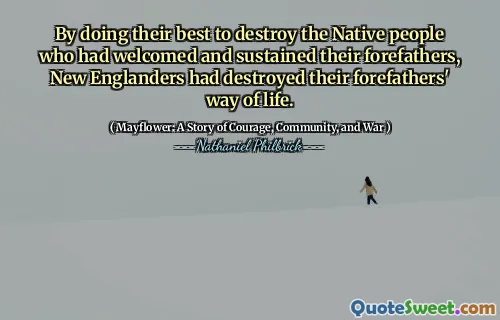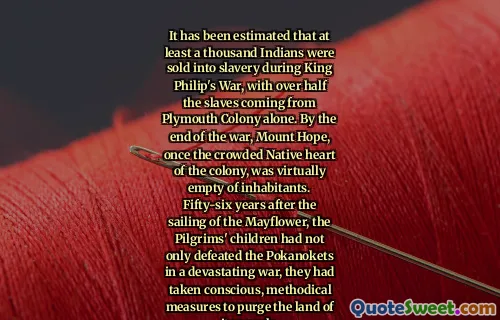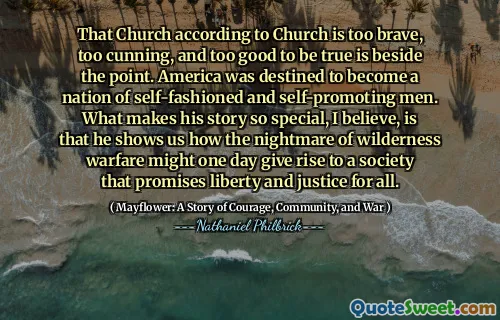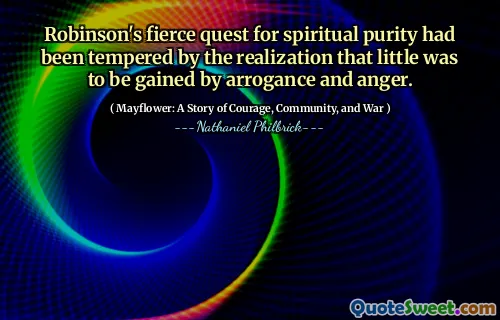
It has been estimated that at least a thousand Indians were sold into slavery during King Philip's War, with over half the slaves coming from Plymouth Colony alone. By the end of the war, Mount Hope, once the crowded Native heart of the colony, was virtually empty of inhabitants. Fifty-six years after the sailing of the Mayflower, the Pilgrims' children had not only defeated the Pokanokets in a devastating war, they had taken conscious, methodical measures to purge the land of its people.
This quote highlights a dark and often overlooked chapter of American colonial history, emphasizing the brutal consequences of King Philip's War. The war, which took place between 1675 and 1678, was a pivotal conflict that marked the struggle between Native American tribes and English settlers. The estimate that over a thousand Native Americans were sold into slavery reveals the profound human cost and the systematic brutality inflicted upon indigenous communities. The devastation wasn’t limited to combat alone; entire populations were decimated or displaced, forever altering the fabric of Native societies. Mount Hope, once a thriving Native settlement, ended up virtually deserted, symbolizing the erasure of a vibrant culture due to colonization efforts and war. The reference to the pilgrims' 'children'—the subsequent generations—speaks to a calculated effort to remove native peoples from the land they inhabited for centuries, illustrating how violence transitioned from warfare to cultural and demographic cleansing. It forces us to confront the uncomfortable truths behind the founding stories often told with emphasis on bravery and perseverance, while ignoring the suffering and systemic eradication of indigenous peoples. This narrative underscores the importance of acknowledging past injustices, understanding the long-lasting repercussions of colonial violence, and fostering historical awareness that includes Native perspectives in the story of America. Recognizing these truths is essential for developing a more complete and truthful understanding of history, one that respects the resilience and rights of indigenous communities.









